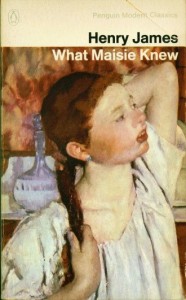Twentieth Century Perspectives

Unlike many other writers, Henry James didn’t admire Tolstoy’s novels, and famously referred to them as “baggy monsters”. At the tail end of the 19th century, he wrote What Maisie Knew, a crisp and precise tale of divorce, as seen through the eyes of a young girl caught in the middle. It sounds sentimental, but anyone who’s read James knows that – unlike Tolstoy and Dickens – he tends not to tug on the heartstrings.
After James, one of the most celebrated American masters of literary prose was John Updike. He wrote an extraordinary amount of shorts stories and novels (alongside a stack of non-fiction). A number of his stories of the 1960s and ‘70s chronicled the relationship of Joan and Richard Maple, and these were later collected as Too Far To Go. Read together, this series of snapshots manages to combine the suddenness and the slow burn of a disintegrating relationship. In his preface, Updike shares his extraordinary philosophy of divorce: ‘That a marriage ends in less than ideal; but all things end under heaven, and if temporality is held to be invalidating, then nothing real succeeds’.
Others to explore: Play It As It Lays by Joan Didion, Light Years by James Salter
What classics would you add to our selection?